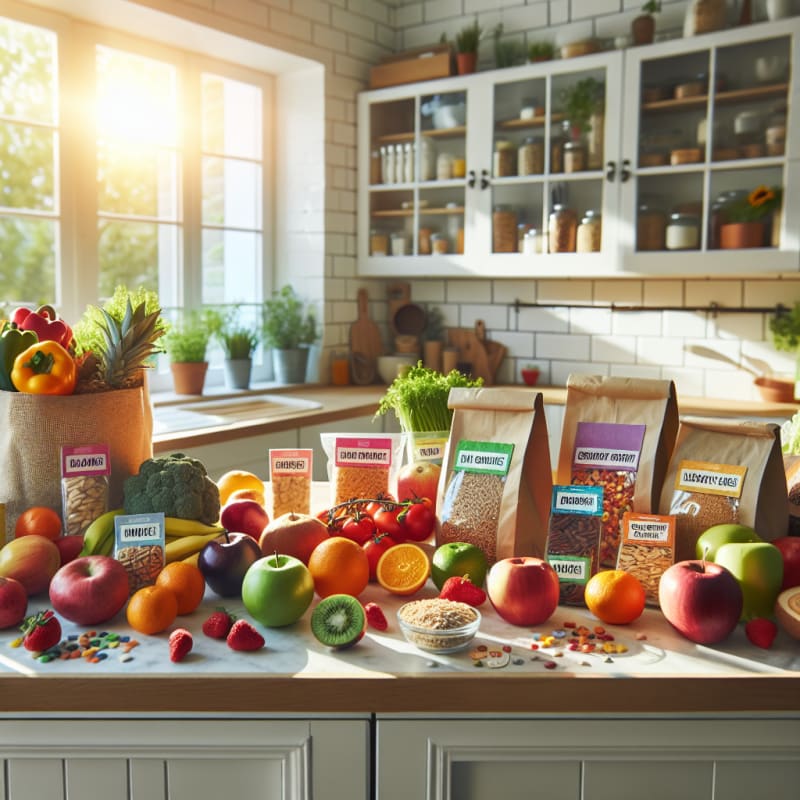Food Choices That Can Increase Type 2 Diabetes Risk
Type 2 diabetes is a growing public health concern worldwide, affecting millions of people and placing a significant burden on healthcare systems. Understanding how everyday food choices impact your risk is crucial—especially as new research, food safety alerts, and dietary regulations reshape the landscape of what we eat. This article, referencing The County Press, explores which foods increase diabetes risk, the latest food news, and how apps like Food Scan Genius empower safer, smarter choices for everyone.
Understanding Type 2 Diabetes and Diet
Type 2 diabetes is characterized by insulin resistance, where the body’s cells become less responsive to insulin, leading to elevated blood glucose levels. While genetics play a role, dietary habits are a major modifiable risk factor. According to the CDC, more than 90% of diabetes cases are type 2, and many can be prevented or delayed with healthy eating and lifestyle changes.
Foods That Increase Type 2 Diabetes Risk
| Food Type | Why It Increases Risk | Scientific Evidence |
|---|---|---|
| Sugar-sweetened beverages | High in added sugars, spike blood glucose, increase insulin resistance | Malik et al., 2013 (PubMed) |
| Refined grains (white bread, white rice) | Low in fiber, cause rapid blood sugar spikes | Hu et al., 2014 (PubMed) |
| Processed meats (sausages, hot dogs) | High in sodium, nitrates, and saturated fat | Pan et al., 2011 (PubMed) |
| Trans fats (partially hydrogenated oils) | Increase inflammation and insulin resistance | FDA, 2015 |
| High-calorie fast foods | Promote weight gain, central obesity, and metabolic syndrome | Pereira et al., 2005 (PubMed) |
Additional Risk Factors
- Excessive alcohol intake – Linked to higher diabetes risk (Knott et al., 2015)
- Low intake of fruits, vegetables, and whole grains – Protective foods often lacking in Western diets (Hu et al., 2014)
Latest Food Safety Alerts & Dietary Regulations
Staying informed about food safety alerts and new regulations is vital, especially for those at risk of diabetes or with food sensitivities:
- Product Recalls: The FDA regularly updates recalls, such as the 2024 recall of certain salad kits due to Listeria contamination (Food Safety News).
- Labeling Laws: New front-of-pack sugar labeling is being discussed in the EU, aiming to help consumers make healthier choices (Food Navigator).
- Banned Ingredients: The FDA has banned trans fats in processed foods, a move linked to lower diabetes and heart disease rates (FDA).
Emerging Food Trends and Brand Updates
- Plant-based diets are gaining popularity and may reduce diabetes risk (Satija et al., 2019).
- Keto and low-carb diets are being studied for their effects on blood sugar control (Choi et al., 2020).
- Brand reformulations are removing added sugars and artificial ingredients to meet new health standards (Food Dive).
How Food Choices Impact Everyone
While type 2 diabetes risk is a personal health issue, the broader implications affect us all—from rising healthcare costs to shifts in food production and labeling. Authorities like the FDA (U.S.) and EFSA (Europe) are actively working to improve food transparency and safety, but informed consumer choices remain essential.
Smart Shopping: How Food Scan Genius Helps
With complex ingredient lists and evolving regulations, making safe, smart food choices can be overwhelming—especially for people with food sensitivities, allergies, or ethical concerns. The Food Scan Genius app (scangeni.us) empowers users to:
- Scan product barcodes to instantly check for added sugars, trans fats, allergens, and banned ingredients
- Receive real-time food safety alerts and recall notifications
- Filter foods by dietary preferences (vegan, keto, gluten-free, etc.)
- Access up-to-date news on food regulations and trends
User Testimonial: “Food Scan Genius has made grocery shopping so much easier for my family. I can quickly see if a product contains hidden sugars or allergens, and I love the instant alerts on recalls. Highly recommend for anyone managing diabetes or food sensitivities!” – Maria L.
FAQs About Food Choices and Type 2 Diabetes
Which foods should I avoid to lower my type 2 diabetes risk?
Limit sugar-sweetened beverages, refined grains, processed meats, trans fats, and high-calorie fast foods. Focus on whole grains, fruits, vegetables, lean proteins, and healthy fats.
How do food recalls and new regulations impact people with diabetes?
Recalls and regulations help reduce exposure to harmful ingredients and contaminants, which is especially important for people with diabetes or food sensitivities. Staying informed ensures safer choices.
Can technology help me make better food choices?
Yes! Apps like Food Scan Genius provide instant ingredient analysis, recall alerts, and dietary filters, making it easier to shop safely and healthily.
Conclusion: Make Food Choices That Protect Your Health
Understanding which foods raise your risk of type 2 diabetes—and staying current with food safety alerts, regulations, and trends—empowers you to make smarter decisions at the store and at home. For those with food sensitivities, diabetes risk, or ethical dietary preferences, tools like Food Scan Genius make it easier to navigate the complex world of ingredients and labels. Stay informed, shop smart, and take control of your health—one bite at a time.





